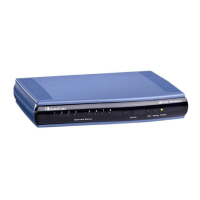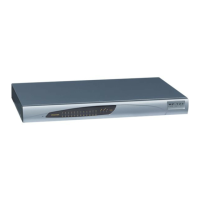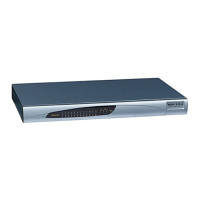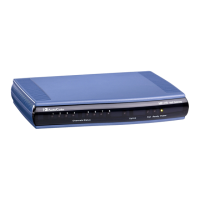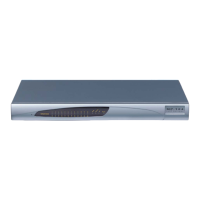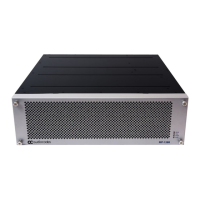session was initially opened. If the two are not identical, then the destination IP address of
the outgoing RTP packets is set to the source IP address of the first incoming packet. The
RTP, RTCP and T.38 can thus have independent destination IP addresses and UDP ports.
To enable NAT resolution using the First Incoming Packet mechanism:
1. Open the General Media Settings page (Configuration tab > VoIP menu > Media >
General Media Settings).
2. Set the 'NAT Traversal' parameter to Enable.
3. Click Submit.
The EnableIpAddrTranslation and EnableUdpPortTranslation parameters allow you to
specify the type of compare operation that occurs on the first incoming packet. To compare
only the IP address, set EnableIpAddrTranslation to 1, and EnableUdpPortTranslation to 0.
In this case, if the first incoming packet arrives with only a difference in the UDP port, the
sending addresses won’t change. If both the IP address and UDP port need to be
compared, then both parameters need to be set to 1.
11.8.2.2 No-Op Packets
The device's No-Op packet support can be used to verify Real-Time Transport Protocol
(RTP) and T.38 connectivity, and to keep NAT bindings and Firewall pinholes open. The
No-Op packets are available for sending in RTP and T.38 formats.
You can control the activation of No-Op packets by using the ini file parameter
NoOpEnable. If No-Op packet transmission is activated, you can control the time interval in
which No-Op packets are sent in the case of silence (i.e., no RTP or T.38 traffic). This is
done using the ini file parameter NoOpInterval. For a description of the RTP No-Op ini file
parameters, see 'Networking Parameters' on page 421.
RTP No-Op: The RTP No-Op support complies with IETF Internet-Draft draft-wing-
avt-rtp-noop-03 ("A No-Op Payload Format for RTP"). This IETF document defines a
No-Op payload format for RTP. The draft defines the RTP payload type as dynamic.
You can control the payload type with which the No-Op packets are sent. This is
performed using the RTPNoOpPayloadType ini parameter (see 'Networking
Parameters' on page
421). The default payload type is 120.
T.38 No-Op: T.38 No-Op packets are sent only while a T.38 session is activated. Sent
packets are a duplication of the previously sent frame (including duplication of the
sequence number).
Note: Receipt of No-Op packets is always supported.
11.9 Robust Receipt of Media Streams
The “robust-media” mechanism is an AudioCodes proprietary mechanism to filter out
unwanted media (i.e., RTP, RTCP, and T.38) streams that are sent to the same port
number on the device. In practice, the media RTP/RTCP ports may receive additional
multiple unwanted media streams as result of traces of previous calls, call control errors, or
deliberate attacks. When more than one media stream reaches the device on the same
port number, the “robust-media” mechanism detects the valid media stream and ignores
the rest.
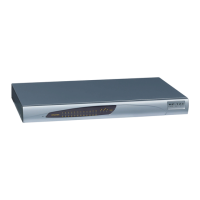
